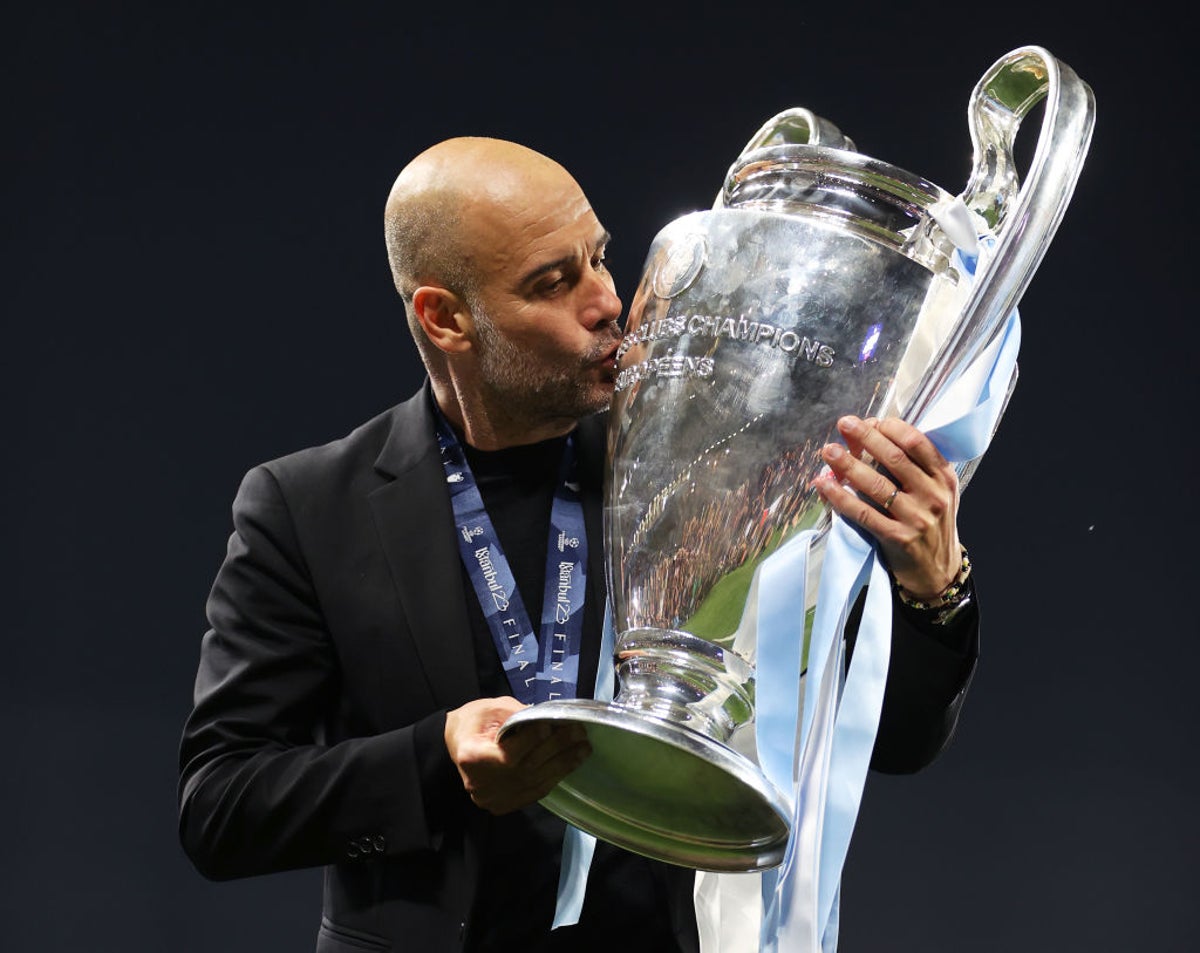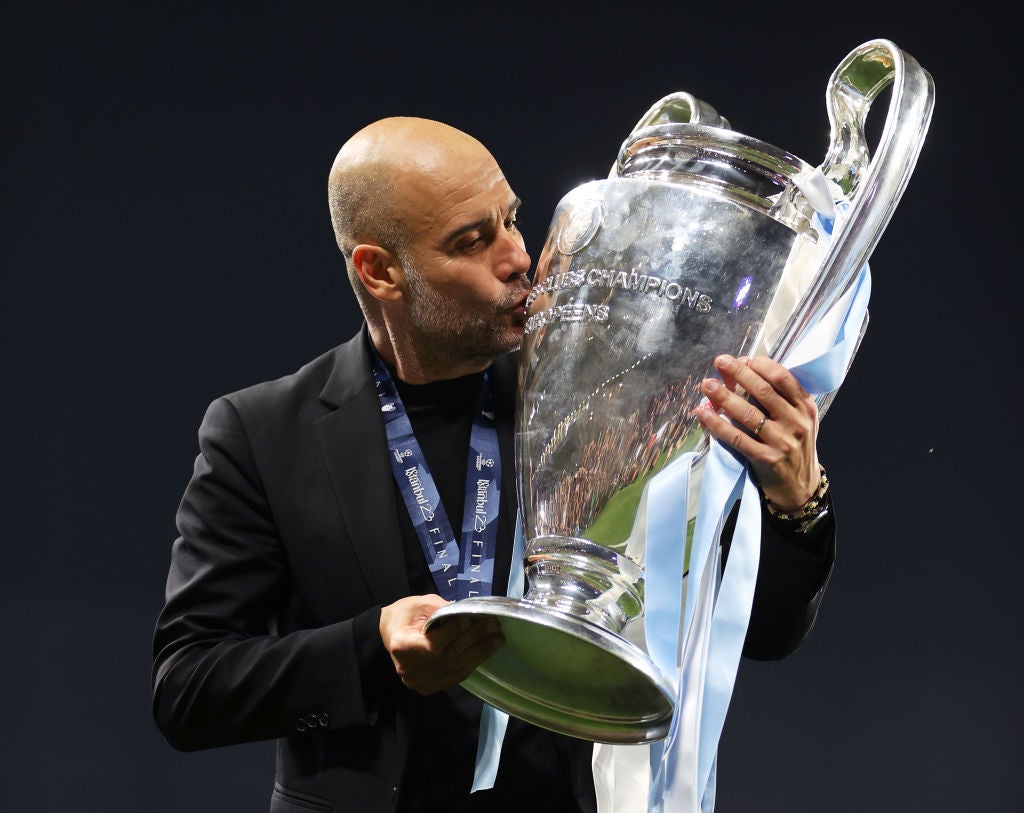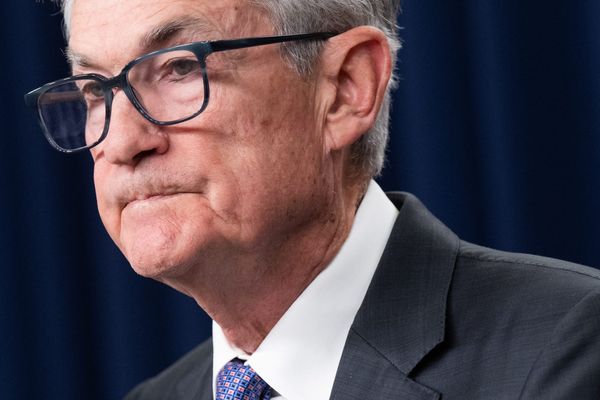
Pep Guardiola had his right arm around Kevin De Bruyne and his left around Ilkay Gundogan as they sang along to “We Are The Champions”. He may have found himself in a particularly appropriate place among his players as the bombastic rock anthem blared out over the Ataturk Stadium. For Guardiola, becoming champions of Europe has taken him seven seasons at Manchester City. De Bruyne and Gundogan have been his constant companions, the Belgian the last survivor from Manuel Pellegrini’s 2016 semi-finalists, the German his first signing. Vice-captain and captain have experienced the disappointments. Now they could savour the delight.
For some, there has been an inevitability that City would conquer Europe. De Bruyne and Gundogan, who turn 32 and 33 respectively this summer, could be forgiven for feeling they had no such guarantees of glory. As Rodri, their match-winner, thanked some of the players who had gone before, who had elevated City to this level – he namechecked Sergio Aguero, David Silva, Vincent Kompany and Fernandinho – he highlighted the reality of how this prize eluded the previous generation.
Not this one, and perhaps not those to come, either. “We can build a legacy for the future,” said the bullish goalscorer. “We can trust in ourselves that we did it and this is what teams like Real Madrid, Bayern Munich, Barcelona, AC Milan – these kind of clubs – did in the past.”
All of which may be what their rivals fear. Even a man as relentless as Guardiola, with his track record of winning time and again, sought to take his mind off it, however briefly. “Now is the time to celebrate,” he said. He scoffed at comparisons with Real. “We are just 13 Champions Leagues behind them,” he said. “Be careful, Real Madrid, because we are on our way. You sleep a little bit and we will catch you.”
There was a point behind the mocking aside. Only Real have retained this trophy in the last three decades. Even when Guardiola had a Barcelona team often heralded as the best ever, they fell at the semi-final hurdle twice as defending champions. When a team wins the Champions League, it is easy to predict an age of dominance. It rarely actually materialises, partly due to the vagaries of cup games against elite teams. “People say I have to win trebles every season,” Guardiola reflected. “I am a good manager but no.”
But there was nevertheless a warning. City could have staying power. They might not be a one-hit wonder. “There are teams that win the Champions League and after one or two seasons disappear,” Guardiola added. “This is what you have to avoid. Knowing me this is not going to happen.” He has a contract to 2025, a structure built around him and a willingness to praise his employers that suggests he is going nowhere. “Normally when you don’t win the Champions League after so many years you are sacked – how many clubs destroy the project?” he asked.
His own project had survived previous European heartbreaks. Perhaps City will not slip back to the pack until Guardiola leaves, Erling Haaland does or both. Rodri sounded confident about the future. “Guys like Erling, 22-year-olds, and the lads coming now, we have a very good squad for the next years,” he said.
It is true, though the average age of City’s starting 11 – 28 years and 137 days – is scarcely young, and that was with the 33-year-old Kyle Walker and the 32-year-old Riyad Mahrez on the bench. And there is the prospect a club who rarely lose players they want to keep could be stripped of a duo just when treble winners have hit an all-time high.

Guardiola has three next-level technical talents in his midfield. One is De Bruyne, happily settled in Manchester, a City lifer by this point. Another is Gundogan, out of contract this summer and, much as Guardiola is desperate to keep him, available on a free transfer and of seeming interest to Arsenal and Barcelona, perhaps each offering a longer deal. The third is Bernardo Silva, in his own strange sense of stasis, a brilliant player who wants to leave every summer and never does. But the lengthy hug between Guardiola and one of his favourite footballers on the Turkish pitch indicated this might finally be the year he does go. Neither would be easy to replace. There is the chance that as Guardiola has come to embrace out-and-out defenders and a giant striker, City lose some of their uniqueness. Maybe John Stones’s reinvention as a midfielder can help, along with the skills he unveiled against Inter – “the way he dribbled, he played like Maradona,” said Manuel Akanji – and Silva’s departure could open the door for Phil Foden to return to the starting 11.
The probability that there is no way back for Joao Cancelo after his loan at Bayern Munich accentuates the need for full-backs who meet Guardiola’s demands, which now seem defensive as well as an attacking. Yet City now possess the advantages of a huge turnover, a habit of selling profitably in recent seasons and leeway within Financial Fair Play, even if it is all conducted to a backdrop of the 115 Premier League charges, some relating to their funding, sponsorships and accounts for previous years.
For now, though, City are well positioned to maintain their superiority in England, though not necessarily Europe. Guardiola spent much of his media duties at the Ataturk asking for more credit for their return of five Premier Leagues in six seasons. The anomaly came when Liverpool won 26 of their first 27 league games and when City were left short at centre-back by Vincent Kompany’s departure and Aymeric Laporte’s absence. That is what it can take to halt them. At least 90 points will be required to leapfrog them next season; the chances are that no one will get them.
Even as City conquered Europe, the narrowness of their win over Inter, the reliance on Ederson for brilliant saves, showed the difficulty of knockout football and underlined that they are best placed to reign supreme in the Premier League. Istanbul may be the end of an era for one or two, but not for Guardiola or City. They won’t disappear. But even as chairman Khaldoon al-Mubarak marked victory by noting to Guardiola that next season’s Champions League final is London, it is far from a certainty City will be there.







